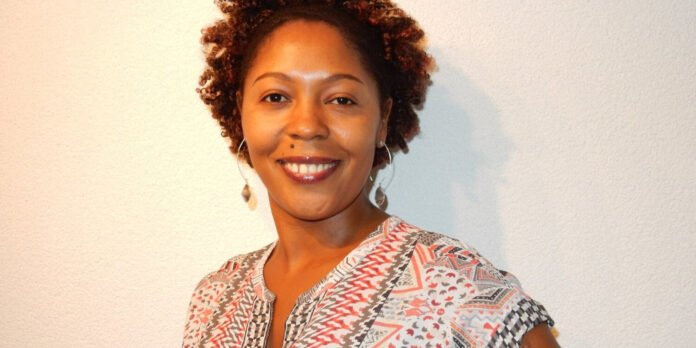Pauline Koelbl: Championing African Female Entrepreneurs through ShEquity
In the vibrant landscape of African entrepreneurship, Pauline Koelbl stands out as a beacon of hope and innovation. As the founder and managing partner of ShEquity, an early-stage investment firm, she is dedicated to empowering African female entrepreneurs. With a focus on sectors such as fintech, agribusiness, and healthcare, ShEquity is not just about financial backing; it’s about creating sustainable business opportunities that can transform communities.
ShEquity’s Mission and Vision
ShEquity was born out of a recognition of the unique challenges faced by women entrepreneurs in Africa. The firm aims to bridge the funding gap that often leaves female-led businesses underserved. By investing in women-led startups, ShEquity is not only fostering economic growth but also promoting gender equality in the business world. Koelbl emphasizes that empowering women is crucial for the continent’s overall development, as women often reinvest their earnings back into their families and communities.
Investment in Owoafara: A Case Study
One of ShEquity’s recent investments is in Owoafara, a Nigerian digital banking startup. The motivation behind this investment is clear: Owoafara is on a mission to unlock financial access for Africa’s underserved populations. With 65% of people in sub-Saharan Africa living in low-income communities and lacking basic financial services, Owoafara aims to provide solutions that cater specifically to these demographics.
Owoafara’s approach is particularly noteworthy. The startup focuses on informal traders who predominantly operate cash-based businesses, which account for over 90% of the $2 trillion generated by SMEs in the region. By offering savings, loans, and transaction platforms, Owoafara is poised to make a significant impact on financial inclusion.
Competitive Edge in the Nigerian Market
In a competitive landscape filled with digital banking and lending platforms, ShEquity believes Owoafara has the potential to thrive. One of the key factors is the team’s impressive track record, which showcases their ability to adapt to customer needs and sustain growth. Even before receiving institutional investment, Owoafara had successfully completed $1.1 million in transactions.
Moreover, the team’s deep understanding of their customer base—primarily women—positions them uniquely in the market. With 80% of Owoafara’s current loan book comprised of women, the startup is addressing a critical gap in financial services. Additionally, Owoafara’s algorithms are designed to counteract the biases often found in traditional credit scoring models, providing women with a fairer chance at obtaining credit.
Untapped Opportunities in Fintech
When asked about other areas within the fintech industry ripe for innovation, Koelbl points to the last-mile distribution of financial services. This includes health insurance, pensions, and peer-to-peer remittances, particularly for those without access to internet-enabled devices. The potential for startups to address these gaps is immense, as many underserved populations remain disconnected from essential financial services.
Ecodudu: A Sustainable Investment
ShEquity’s commitment to sustainability is further exemplified by its investment in Ecodudu, a Kenyan company that utilizes the black soldier fly to produce bio-fertilizer and insect protein for animal and fish feed manufacturers. The decision to invest in Ecodudu was driven by the company’s innovative approach to addressing two pressing issues: access to natural proteins and waste management.
Ecodudu operates within a circular economy framework, working with small-scale farmers to integrate them into the value chain of insect protein production. This not only provides a sustainable source of protein but also contributes to waste management solutions. By focusing on environmental sustainability while delivering economic benefits, Ecodudu aligns perfectly with ShEquity’s philosophy of doing well while doing good.
Healthcare Investments: Tackling Critical Challenges
ShEquity has also made strides in the healthcare sector, investing in companies like Medsaf and Wazima Health. Medsaf is dedicated to providing accessible, quality medication in Nigeria, addressing the critical issue of counterfeit drugs. By supporting the entire healthcare value chain, Medsaf aims to ensure that hospitals and clinics can reliably source and manage their medication needs.
Wazima Health, on the other hand, offers an integrated telehealth platform that addresses the growing prevalence of non-communicable diseases in sub-Saharan Africa. With projections indicating that these diseases will become the leading cause of death in the region by 2030, Wazima’s services are crucial. The platform facilitates point-of-care screening, rapid diagnosis, and continuous care management, addressing the significant gaps in healthcare access and quality.
Addressing Non-Communicable Diseases
The challenges posed by non-communicable diseases are staggering. An estimated 270 million people in sub-Saharan Africa are affected, yet 60% remain undiagnosed or poorly managed. Wazima Health’s innovative approach to healthcare delivery aims to change this narrative by providing comprehensive support and management for patients, ensuring they receive the care they need.
Conclusion
Pauline Koelbl and ShEquity are at the forefront of a transformative movement in African entrepreneurship. By focusing on female-led businesses and investing in sectors that address critical societal challenges, they are not only fostering economic growth but also paving the way for a more equitable future. Through strategic investments in fintech, agribusiness, and healthcare, ShEquity is making a lasting impact on the continent, one entrepreneur at a time.

